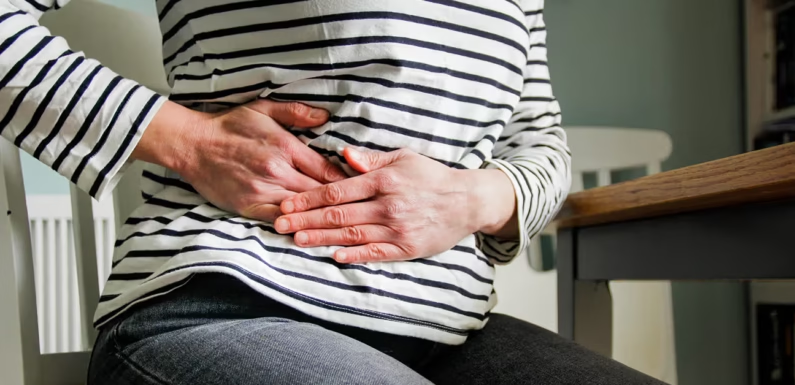
Many people experience discomfort after eating, which can range from mild bloating to severe pain. If you frequently suffer from an upset stomach, it could be due to various factors, including dietary choices, digestive health, and lifestyle habits.
Understanding the symptoms of an upset stomach can help you identify potential triggers and find natural solutions to ease your discomfort.
Common Reasons for Stomach Discomfort
Digestive issues can be triggered by several factors, including food intolerances, stress, and infections. Some of the most common causes of stomach gas include eating too quickly, consuming carbonated beverages, and excessive fiber intake.
Gas buildup can lead to bloating, cramping, and overall digestive discomfort. In some cases, underlying conditions such as irritable bowel syndrome (IBS) or small intestinal bacterial overgrowth (SIBO) may contribute to excessive gas production.
When to Seek Medical Help
While natural remedies can be effective in managing mild digestive discomfort, persistent or severe symptoms may indicate an underlying medical issue. Frequent bloating, cramping, and irregular bowel movements should not be ignored. Consulting a healthcare professional can help diagnose conditions such as gastritis, IBS, or food intolerances.
For those experiencing frequent stomach discomfort, seeking medical advice is essential. If symptoms persist, visiting the best multispeciality hospital in your area can help determine if there is an underlying medical condition that needs treatment. Specialists can conduct tests to rule out food intolerances, digestive disorders, and infections.
Foods That Can Trigger Stomach Pain
Certain foods are known to cause digestive issues, especially when consumed in large amounts. Common culprits include:
- Spicy and fried foods
- Dairy products (for those who are lactose intolerant)
- Processed and artificial sweeteners
- Caffeinated and alcoholic beverages
- Cruciferous vegetables like broccoli and cabbage, which may increase gas production
- High-fat foods that slow digestion and cause bloating
Making dietary adjustments, such as reducing the intake of these trigger foods, can significantly improve digestion and reduce discomfort. Keeping a food diary can also help identify specific foods that may be causing digestive distress.
The Role of Gut Health in Digestion
Poor gut health can manifest through various symptoms of bad gut health, including bloating, constipation, diarrhea, and even skin issues. An imbalance in gut bacteria can also lead to inflammation and poor nutrient absorption, further exacerbating digestive problems.
Improving gut health naturally involves consuming probiotic-rich foods like yogurt, kefir, and fermented vegetables. These foods help restore beneficial bacteria in the gut, promoting better digestion and reducing the risk of stomach discomfort.
Additionally, fiber-rich foods such as whole grains, fruits, and vegetables support a healthy gut environment by feeding good bacteria.
Natural Remedies for Digestive Issues
If you frequently experience stomach pain after meals, there are several natural remedies you can try to alleviate discomfort:
- Drink Herbal Teas: Peppermint and ginger teas are known to soothe the stomach and reduce bloating.
- Stay Hydrated: Drinking enough water promotes digestion and prevents constipation.
- Practice Mindful Eating: Eating slowly and chewing food thoroughly can reduce the likelihood of swallowing excess air, which can lead to bloating.
- Manage Stress: High stress levels can harm digestion. Activities such as yoga, meditation, and deep breathing can help improve gut function.
- Try Apple Cider Vinegar: Diluting a teaspoon of apple cider vinegar in water before meals may help with digestion by increasing stomach acid levels.
- Incorporate Digestive Enzymes: Taking natural digestive enzyme supplements can assist in breaking down food more efficiently, preventing bloating and discomfort.
- Exercise Regularly: Engaging in light physical activity, such as walking after meals, can aid digestion and reduce the risk of bloating and cramping.
- Avoid Overeating: Large meals put a strain on the digestive system, so eating smaller, more frequent meals may help prevent discomfort.
Lifestyle Changes for Long-Term Relief
Improving digestion requires a holistic approach, including diet, exercise, and stress management. Here are some long-term lifestyle changes to consider:
- Increase Fiber Intake Gradually – A sudden increase in fiber can cause bloating, so it’s important to introduce it slowly.
- Reduce Processed Foods – Highly processed foods often contain additives and preservatives that can disrupt digestion.
- Get Enough Sleep – Poor sleep patterns can negatively impact gut health, leading to digestive problems.
- Limit Dairy and Gluten – Some people have sensitivities to dairy and gluten, which can cause inflammation and stomach pain.
- Stay Active – Regular physical activity helps maintain a healthy digestive system by keeping food moving through the intestines.
Conclusion
Stomach pain after eating is a common issue that can often be managed with dietary changes and natural remedies. Understanding the causes of upset tummy and making lifestyle adjustments can improve digestion and overall gut health.
If symptoms persist, consulting a medical professional is crucial in identifying any underlying conditions. Taking proactive steps towards better gut health can lead to long-term relief and improved well-being.
By making mindful dietary choices, staying hydrated, managing stress, and incorporating natural remedies, you can support your digestive system and enjoy meals without discomfort.

